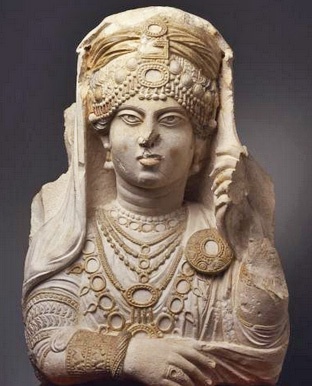Ahhotep : Military Leader and Egyptian Pharaoh
Ahhotep’s burial equipment included a dagger and an inscribed ceremonial axe blade made of copper, gold, electrum and wood. The decorations were characteristically Minoan. Also found were three golden flies, badges of bravery awarded to people who served in the army.
Fu Hao: China’s First Female General:
One of the earliest records of female warriors in China comes from oracle bones found in a tomb. The bones told the forgotten story of a ruthless military general of the Shang Dynasty in 1200 BC. The warrior was Fu Hao, queen consort of King Wu Ding, high priestess, and military leader. She defended the Shang dynasty in several battles.
At the time of her death, she was the first female Chinese soldier to be buried with the highest military honors.
Artemisia I Of Caria: Commander of Ancient Halicarnassus
According to Herodotus, Artemisia of Halicarnassus was a Greek queen in the 5th century BC, long before Alexander the Great. Artemisia wielded power during a time when Greek women couldn’t vote in Athens, the home of original democracy. She is described as a femme fatale, pirate queen, and played a role in the events of the 300 Spartans described in the movies. During the Greco-Persian wars, she fought for the Persians at Salamis and contributed her warships to the Persian Navy.
Zenobia, warrior queen of the Roman colony of Palmyra, in present-day Syria, from 267 or 268 to 272.
She was described as a conqueror. In 269-270, Zenobia and her general, Zabdeas, conquered Egypt, ruled by the Romans. When the Roman prefect of Egypt objected to Zenobia's takeover, Zenobia had him beheaded. Then she sent a declaration to the citizens of Alexandria, calling it "my ancestral city," claiming her Egyptian ancestry. Zenobia personally led her army as a "warrior queen." She conquered more territory, including Syria, Lebanon, and Palestine, creating an empire independent of Rome. After winning and ruling these Roman provinces, she was subjugated by Emperor Aurelian. She died in captivity sometime after 274.
The Amazons:
The Amazons were not the stuff of legends.
Long believed to be purely imaginary, the Amazons were the warrior women described as the archenemies of the ancient Greeks. Recently, the remains of 300 warrior women were found in more than 1,000 excavations of Scythian kurgans (burial mounds), from Ukraine to Central Asia. This spectacular discovery gives credit to the myth of the amazon warriors.
They were reported in the Greek writings of Herodotus as women the Greeks encountered on their expeditions around the Black Sea. They rode horses, hunted, fought, used bows and arrows, just like men. They were fierce, nomadic, and refused to remain sedentary. They lived without men, whom they only frequented for procreation. They kept the baby girls but when the boys reached the age of five, they returned them to their fathers.
Other writings relate similar stories of Amazons by travelers from ancient Persia, Egypt, and as far as China.
Warrior women of Ancient Japan:
For thousands of years, certain upper-class Japanese women have learned martial skills and participated in battles right alongside the male warriors. They were skilled with sword, spear, and bow.
These include the legendary Empress Jingu, (169-269 A.D.) She ruled as a regent following her husband’s death in 200 AD. After seeking revenge on the people who murdered her husband, she invaded the Korean peninsula, the ancestral land of her mother, who was a descendant of a legendary Korean prince.
Empress Jingū became the first woman to be featured on a Japanese banknote however, since no actual images of this legendary figure are known to exist, the representation of Jingū was artistically contrived from the photograph of a 19th Century Japanese woman.
I write about all kinds of warrior women in my novels. But if you like ancient warrior women, you may want to check out these, available in eBook and paperback on my links below.
Strong Heroines, Brave Heroes, cats
http://www.vijayaschartz.com
amazon - B&N - Smashwords - Kobo - FB















giganic_se_1996 Doug Clavet Here
ReplyDeleteacepheret